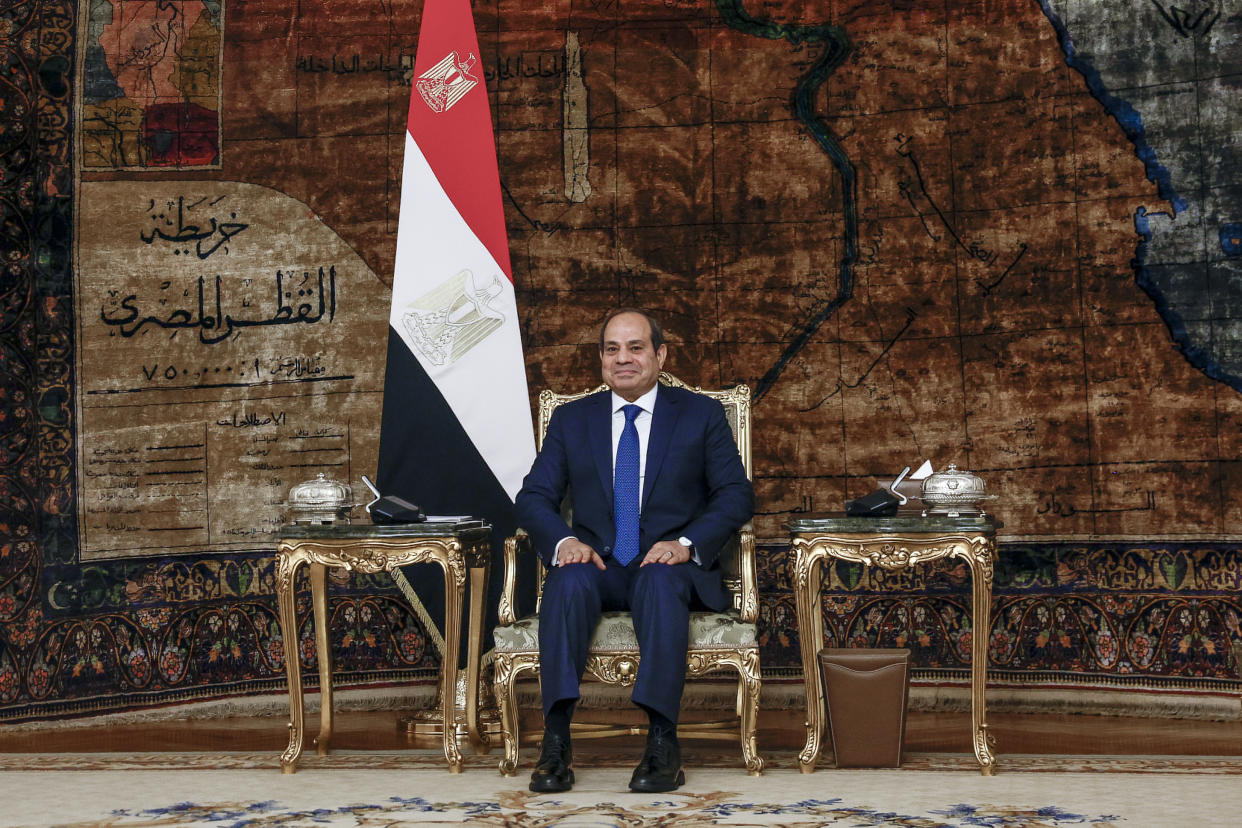Egypt’s leader el-Sissi slams Ethiopia-Somaliland coastline deal and vows support for Somalia

CAIRO (AP) — Egypt’s leader said Sunday his country stands shoulder to shoulder with Somalia in its dispute with landlocked Ethiopia, which struck a deal with Somaliland to obtain access to the sea and establish a marine force base.
President Abdel Fattah el-Sissi slammed Ethiopia’s agreement with the breakaway region. He called on Ethiopia to seek benefits from seaports in Somalia and Djibouti “through transitional means,” rather than through attempts to “control another (country’s) territory.”
“We will not allow anyone to threaten Somalia or infringe upon its territory,” el-Sissi told a joint news conference in Cairo with Somali President Hassan Sheikh Mahmoud. “No one should attempt to threaten Egypt’s brothers, especially if our brothers asked us to stand with them.”
Somaliland, a region strategically located by the Gulf of Aden, broke away from Somalia in 1991 as the country collapsed into a warlord-led conflict. The region has maintained its own government despite its lack of international recognition.
Somaliland leader Muse Bihi Abdi signed a memorandum of understanding with Ethiopian Prime Minister Abiy Ahmed earlier this month to allow Ethiopia to lease a 20-kilometer (12.4-mile) stretch of coastline to establish a marine force base.
Sheikh Mohamud, the Somali president, rejected the deal as a violation of international law, saying: “We will not stand idly by and watch our sovereignty being compromised.”
He arrived in Egypt this weekend to rally support for his government. He met with the Arab League chief Ahmed Aboul Gheit and Al-Azhar mosque's Grand Imam, Sheikh Ahmed al-Tayeb.
Egypt is at odds with Ethiopia over a controversial hydroelectric dam Ethiopia has built on the Nile river's main tributary. The two countries — along with Sudan — have been trying for over a decade to reach a negotiated agreement on the filling and operation of the $4 billion Grand Ethiopian Renaissance dam.
The latest round of talks last month ended without a deal and Cairo and Addis Ababa traded blame for the failure.
Negotiators have said key questions remain about how much water Ethiopia will release downstream if a multi-year drought occurs, and how the countries will resolve any future disputes. Ethiopia rejects binding arbitration at the final stage.
The dam is on the Blue Nile near the Sudan border and Egypt fears it will have a devastating effect on its water and irrigation supply downstream unless Ethiopia takes its needs into account.
The dam began producing power last year and Ethiopia said it had completed the final phase of filling the dam’s reservoir in September.

